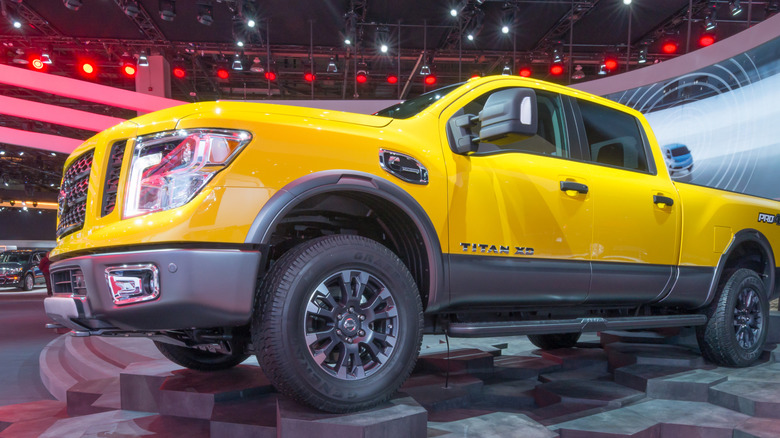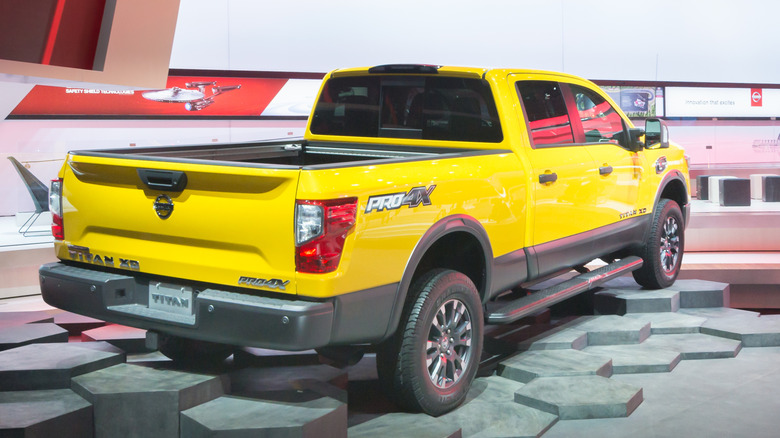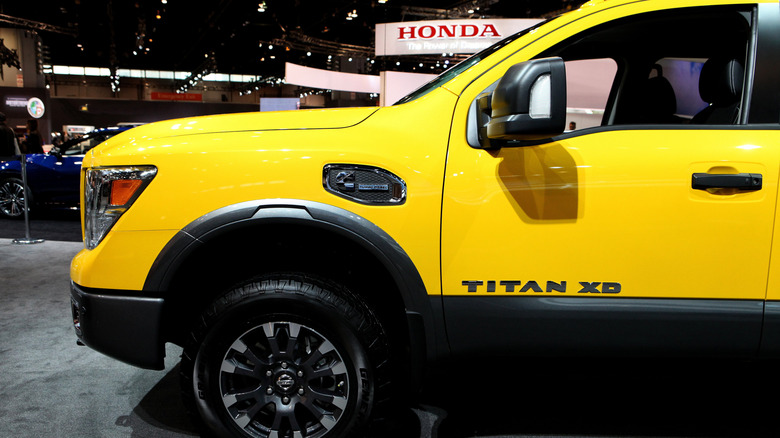Why Did Nissan Discontinue Its Cummins-Powered Titan Truck?
Cummins diesel engines are among the most highly-regarded on the market today. Since engineer Clessie Cummins teamed up with financier WIliam G. Erwin in 1919, Cummins has offered an array of powerful, reliable engines for nearly any application. Cummins engines are commonly found in Ram (formerly Dodge) pickup trucks and commercial vehicles from the likes of Kenworth and Mack, despite several recalls of Cummins engines. These setbacks didn't prevent Nissan from unveiling a Titan XD pickup truck with a newly designed 5.0-liter Cummins turbodiesel V8 at the 2014 Chicago Auto Show. The truck came to dealership lots for the 2016 model year, and at the time many buyers were excited to have another Cummins-powered pickup on the market. However, this enthusiasm was cut short by multiple emerging issues with the Cummins powertrain. The Titan XD saw a slew of mechanical problems including transmission failures and obstructions in the fuel delivery emissions control systems.
The Titan XD (including the gas-powered variant) was never really that popular in the first place, but the problems with Cummins engines didn't help. In the first half of 2019, Nissan only sold around 20,000 Titan trucks. To put that into perspective, Ford sold almost 900,000 F-Series trucks during the year, meaning it likely outsold the Titan by a margin of about 20 to 1 in those first six months. With the model's disappointing sales and burgeoning mechanical problems, Nissan made the wise move to drop the Cummins-powered Titan XD from its lineup after 2019. Within a few years, the National Highway Traffic Safety Administration (NHTSA) began investigating Nissan's Cummins-powered Titan trucks, and the agency has logged hundreds of complaints from owners including failures of the transmission, turbocharger, and fuel and emissions systems.
Cummins had better luck with other automakers
Given the reputation Cummins had cultivated for almost a century, the company's failure to provide Nissan with a decent engine was a surprise. The 32-valve two-stage turbodiesel was rated at 310 horsepower and 555 pound-feet of torque, which was adequate but not impressive for an engine of its size. This was far from one of the best Cummins engines ever made, and the Titan XD's performance was wanting to say the least.
Car and Driver called it "one of the most disappointing new vehicles we have evaluated in recent memory" and noted that its staffers were stranded twice by the Titan XD during a 40,000-mile road test. The Cummins 5.0-liter diesel was also smaller and less powerful than the 390 horsepower 5.6-liter gas-fueled V8 offered on the Titan and Titan XD. That prompted Nissan to drop the Cummins diesel option from the model's option sheet starting in 2020.
The Titan was outsold in the US by domestic pickups
The Cummins 5.0-liter V8 had several issues that ran the gamut of what can go wrong with an engine. Multiple automakers — including Nissan — were sued along with Cummins over Bosch CP4 fuel pumps that could shed metal shavings into the engine and cause thousands of dollars in damage. Cummins-powered Nissan Titans were also prone to developing clogs in the Positive Crankcase Ventilation (PCV), EGR, and Diesel Exhaust Fluid (DEF) systems. This debris and soot could cause turbocharger failure, and the six-speed Aisin automatic transmission shifted hard in cold weather and often overheated while towing.
On top of these well-documented issues, the Cummins-powered Nissan Titan XD faced tough competition from better-selling American trucks like the Ram 1500, Ford F series, and Chevy Silverado. By the time it disappeared, the Titan XD had made little or no impact on the American pick-up truck market, although Cummins continued to supply larger diesel engines to Ram and Ford for use in their heavy-duty and commercial-grade pickups.


